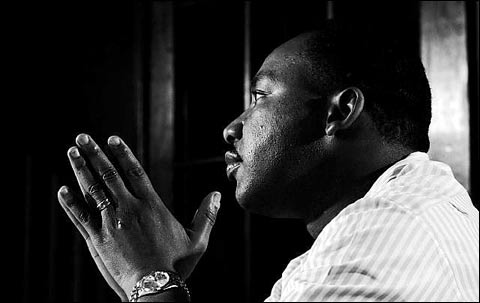
TASER moratorium needed, committee told
April 5, 2008 in News
Cameron Ward appeared before a House of Commons Committee Friday, urging it to recommend a moratorium on TASER use until rigorous independent scientific research has been conducted into the manufacturer’s claims that the weapons do not kill people. Mr. Ward presented the committee with a list of the names of 336 North Americans who have died after being shocked by the TASER’s 50,000 volt electrical output.
In response to a member’s question, forensic pathologist Dr. John Butt confirmed that autopsies cannot detect the effect that TASER electricity may have on a human body.
Here is the summary of Mr. Ward’s presentation:
For the reasons summarized below, I urge you to act in the public interest and make a recommendation that there be an immediate moratorium on the deployment of TASER weapons, so further unnecessary deaths like those of Robert Bagnell and Robert Dziekanski can be prevented.
According to media accounts, at least 336 North Americans have died since September 28, 1999 after being subjected to TASER shock(s). A copy of my list of these fatal incidents is enclosed. There have now been at least 20 reported deaths in Canada, including six here in the Province of British Columbia, with the most recent being that of Mr. Dziekanski on October 14, 2007 at Vancouver International Airport in Richmond.
TASER use is obviously very controversial. Police departments in Chicago, Illinois and Birmingham, Alabama have reportedly discontinued their use of the weapons due to safety concerns. Amnesty International, the American Civil Liberties Union, the National Association for the Advancement of Colored People and the Southern Christian Leadership Conference are some of the public interest advocacy groups that have been
outspoken in their criticism of the weapons. However, the principal manufacturer, TASER International Inc. , has been very effective in persuading the law enforcement
community that its products are safe, despite a significant body of evidence to the contrary .
Simply put, many people, including many experts, cannot accept that the deaths of at least 336 people after being subjected to the TASER’s 50,000 volt electrical output are purely coincidental. The manufacturer and many members of the law enforcement community have adopted the position that “excited delirium” causes the deaths, due to “psychiatric illness or the over use of street drugs, primarily methamphetamine or cocaine”, not the electrical trauma associated with the TASER. In my view, there simply has been insufficient independent research and study into these fatalities to reach any valid conclusions. If “excited delirium” is a “potentially fatal medical condition”, as the manufacturer asserts, one would expect that deaths would occur with similar frequency in incidents that did not involve law enforcement or in situations where TASER weapons had not been used. That is apparently not the case, as I have not yet seen any studies to that effect.
Although TASER International Inc. has commissioned some limited testing on animals, extensive independent testing of the lethality of the devices has apparently never been done in Canada, and was certainly not done before TASER weapons were first distributed to Canadian law enforcement personnel. Furthermore, although other electrical restraint devices like electric fences or cattle prods are subjected to Canadian Standards Association (CSA) testing and certification before distribution, the TASER weapons apparently are not.
You are undoubtedly aware of the TASER Technology Review Final Report prepared by members of the Victoria Police Department at the behest of the Police Complaint Commissioner of British Columbia. In my view, this report was clearly not independent as one of the principal authors, one Inspector Darren Laur, had earlier received payments and stock options from TASER International Inc. for his services to the company. The report failed to make the obvious recommendation, that is, that TASER use be discontinued until the health effects of the weapon are better understood.
There may be a place in the police use of force continuum for TASER technology. However, TASER use should be suspended until rigorous independent scientific research has been performed to properly assess the public safety risk. Unless that happens, more people will die like Mr. Dziekanski did, inexplicably and unnecessarily.
posted by Cameron Ward
Rev. Martin Luther King, Jr.
April 4, 2008 in Opinion
It has been forty years since we lost one of the greatest men to grace the planet. What would Dr. King think of us today?

“I have a dream that one day this nation will rise up and live out the true meaning of its creed: ‘We hold these truths to be self-evident, that all men are created equal.'”
posted by Cameron Ward
Ivan Henry – a step closer to freedom?
March 30, 2008 in News
Independent Special Prosecutor Leonard Doust, Q.C. has delivered his report to the Criminal Justice Branch in the case of Ivan Henry. Mr. Henry was convicted of a series of sexual assaults and sentenced to an indefinite jail term in 1983, following a trial in which he represented himself. He has steadfastly maintained his innocence since 1982, asserting that he was wrongly arrested by the Vancouver Police Department. His conviction appeal was dismissed by the Court of Appeal for want of prosecution, after he failed to purchase and file a copy of the trial transcript.
Read the Criminal Justice Branch’s March 28, 2008 media release:
posted by Cameron Ward
Free Tibet
March 17, 2008 in Opinion

posted by Cameron Ward
Appeals heard in pie saga
March 15, 2008 in News
The appeals from the trial decision in Ward v. City of Vancouver et al. were argued on March 13 and 14, 2008 before three Justices of the British Columbia Court of Appeal. Judgment has been reserved. The case was brought after police refused to apologize to Cameron Ward for their conduct in arresting, strip-searching and imprisoning him after wrongly suspecting he might be involved in some kind of plot to attempt to throw a pie at the Prime Minister of Canada.
Brian Samuels appeared as counsel for Mr. Ward and Prof. Kent Roach was counsel for the British Columbia Civil Liberties Association, which had interbenor status.
The earlier decisions of the Supreme Court of British Columbia can be viewed by clicking here: upload
here: upload
and here: upload







 Follow this site using RSS
Follow this site using RSS

